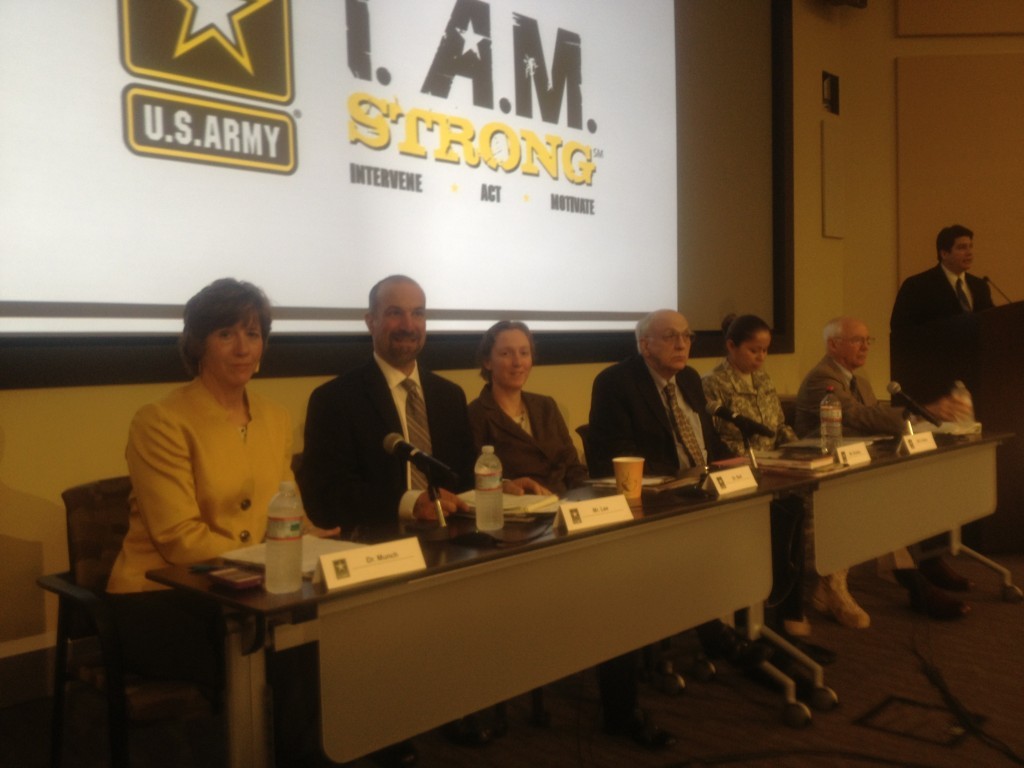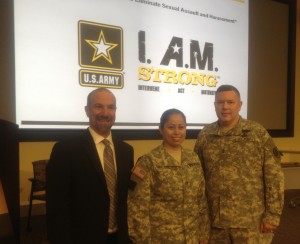Preventing sexual violence in the military: Report back from Army’s Summit

Yesterday I had the opportunity to speak at the 6th Annual US Army Sexual Harassment/Assault Response & Prevention (SHARP) Summit at Andrews Air Force Base. The Summit brought together the Army’s Commanders and Sergeant Majors for the purpose of “Achieving Cultural Change to Eliminate Sexual Assault and Harassment.”
Army Chief of Staff Raymond Odierno set the tone when he said
“We have a huge issue. And the main thing I want everybody to understand is that this is not just a passing issue. For whatever reason, this is one that we’ve had for a very long time. And we have not been able to defeat it.”
Given the news events of the past month, public pressure has been mounting in Congress, by the President and from the general public for action to be taken to hold perpetrators accountable in the military and effectively implement strategies to prevent sexual violence in the military.
I spoke as part of a panel on the first day of the Summit. Drawing on my experiences talking with California’s rape crisis centers and rape prevention programs throughout the country, from May 2013 National Alliance to End Sexual Assault’s policy statement on military sexual violence, and a review of the recently released FY 2012 Department of Defense Annual Report on Sexual Assault in the Military (and Part II), I offered a few observations and recommendations.
I first worked with the military in the 1980’s doing training for Chaplains at San Francisco’s Presidio about preventing child sexual abuse. After I spoke as at a Department of Defense meeting in 2007 on addressing sexual violence, I have see nmany shifts in the military’s approach to sexual violence. While there are many positive developments in the military work to address sexual assault, I am saddened by how far we still have to go to create meaningful change.

Sexual violence is problem in the military, and sexual violence is a problem in many other institutions in our communities. Colleges, universities, athletic teams, faith communities and others also have cultures that maintain silence about victimization and fail to hold perpetrators accountable. While the military justice system frequently does not provide justice in sexual violence cases, the same can be said in our civilians courts. Sexual violence is a military problem, and it is also a community problem. The solution to sexual violence in the military require meaningful partnerships between the military, rape crisis centers and rape prevention activists to create change in culture to eliminate rape.
I ended the my presentation with an invitation for members of the Army to attend the 2013 National Sexual Assault Conference in August where the military can join over 1000 sexual violence prevention activists to imagine a military that eliminates sexual abuse, invests in changing its own culture and join others to help inspire a broader movement to prevent sexual violence.
Click here to see more news articles about this event.
